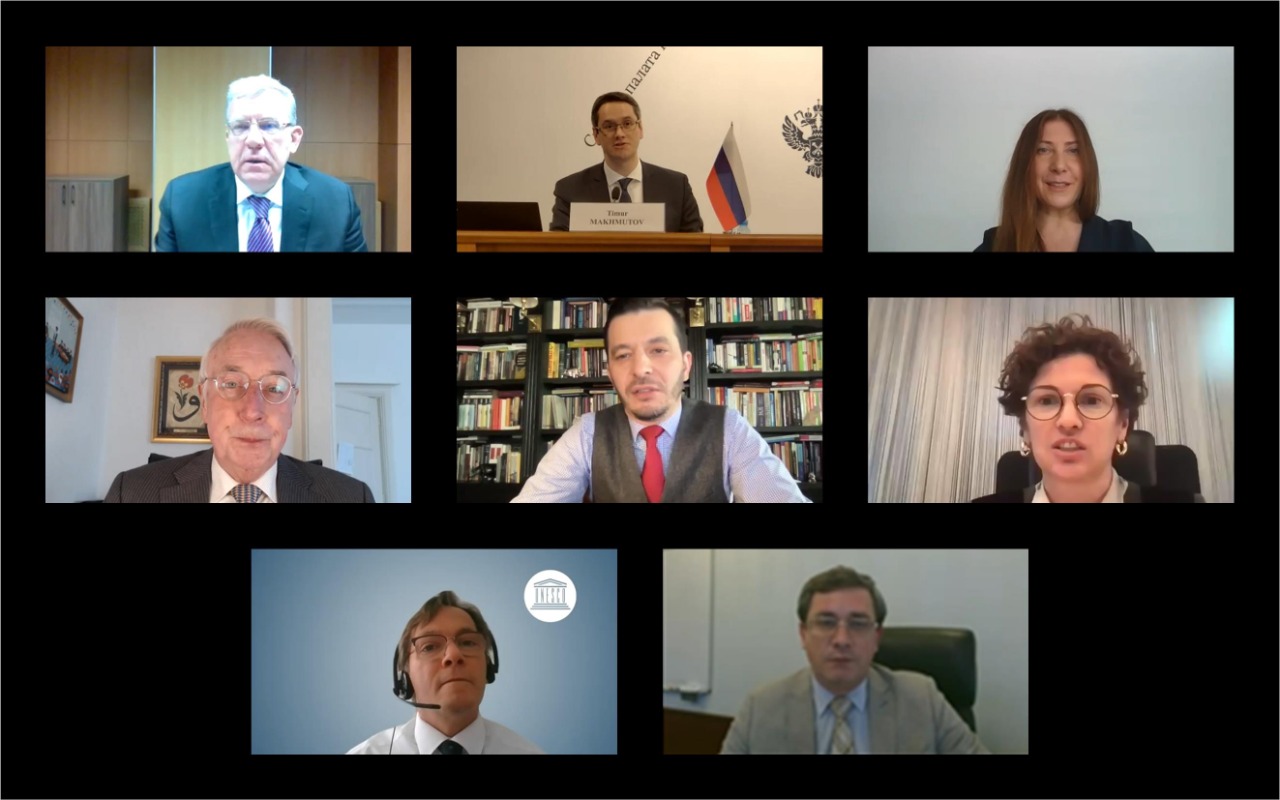
The second day of the First Online International Scientific and Practical Conference: Strategic Audit, Data Analysis, Audit of SDGs and SAI Openness in the Focus of INTOSAI Experts
On April 22, on the second and final day of the First Online International Scientific and Practical Conference under the auspices of the INTOSAI Chair, the audit community members discussed the introduction of a strategic approach to public audit, data analysis and SAI openness, as well as auditing progress in the SDGs achievement.
Similar to the first day of the Conference, the Plenary Session “Online Education: new normal or temporary solution?” marked the beginning of the meeting. Nowadays education faces the new digital era and should be reconsidered to adapt to the new demands and circumstances. Within the Session speakers discussed new normal demands for education, online educational platforms and possible synergy of online and offline formats.
Opening the meeting Timur Makhmutov, Director of the Department for International and Regional Cooperation, stated:
“We all witnessed the unprecedented development of online education during the pandemic, and we are not only talking about general education. These processes also impacted greatly the area of professional capacity building. For instance, through the webinars and monitoring activities conducted by the Expert Group on COVID-19 within the Supervisory Committee on Emerging Issues, we could see a significant rise in the number of educational activities in the INTOSAI community. For well-known reasons, most of them lately have been held online.”
The COVID-19 pandemic is a clear example of an event that has caused government institutions to act in unison in order to uphold the wellbeing of their fellow citizens and preserve the stability of the economy. It has brought an additional relevance to the need to take a strategic approach at the highest level of public audit and created public and social demand in this respect.
Plenary Session was presented by the following speakers:
- Dr. Hans Wissema, Professor Emeritus at TU Delft, the Netherlands;
- Sobhi Tawil, Director of the Future of Learning and Innovation Team and the Futures of Education initiative of UNESCO;
- Andrey Kurpatov, Scientific Director of the Sberbank Neuroscience and Human Behaviour Laboratory, President of the High School of Methodology;
- Julia Solovieva, managing director of Google Russia;
- Maksim Nazarov, Vice-Rector of the Russian Presidential Academy of National Economy and Public Administration (RANEPA).
- Svetlana Infimovskaya, Director of School 21, Sberbank educational initiative, took the moderator role.
Plenary Session was followed by the participants breaking into groups to discuss the most pressing issues for the audit community as a whole. Topics for discussion on the second day included strategic audit, data analysis in SAI performance, SAI openness, audit of SDGs. As is customary, the topics were discussed in small groups in the form of an open discussion, with each group member having the opportunity to speak their mind. A total of approximately 200 SAIs representatives took part in the discussions, which were moderated by 19 of the most reputable members of the audit community. The moderators recorded the most important proposals and ideas, which were later presented at the Closing Session.
Closing the Conference Aleksei Kudrin declared:
“In the current realities it is essential for the SAIs to develop practical approaches and to use reliable tools in order to work with data and information, as well as to develop standards and establish requirements for the data provided by audited entities. It is significant to enhance cooperation with an expert community: to conduct joint educational seminars and implement more active communication policy. New circumstances form public demand for the specification of the SAIs performance on inclusiveness, as well as the SDGs implementation.”
The Conference was attended by more than 500 representatives from 101 SAIs. Translation of the Conference was conducted into Russian and five official INTOSAI languages (English, Spanish, French, German, Arabic).



